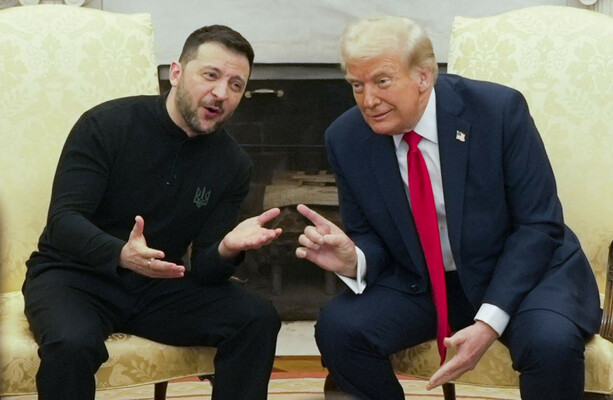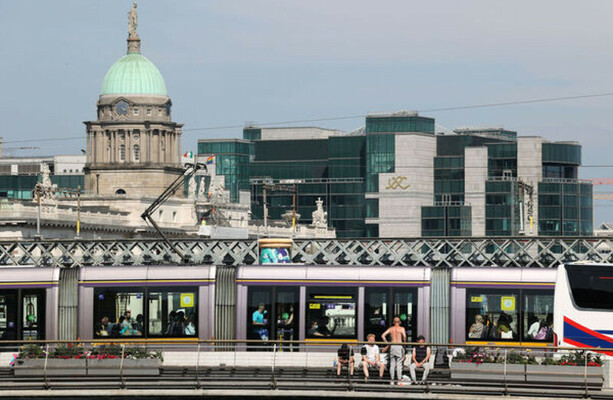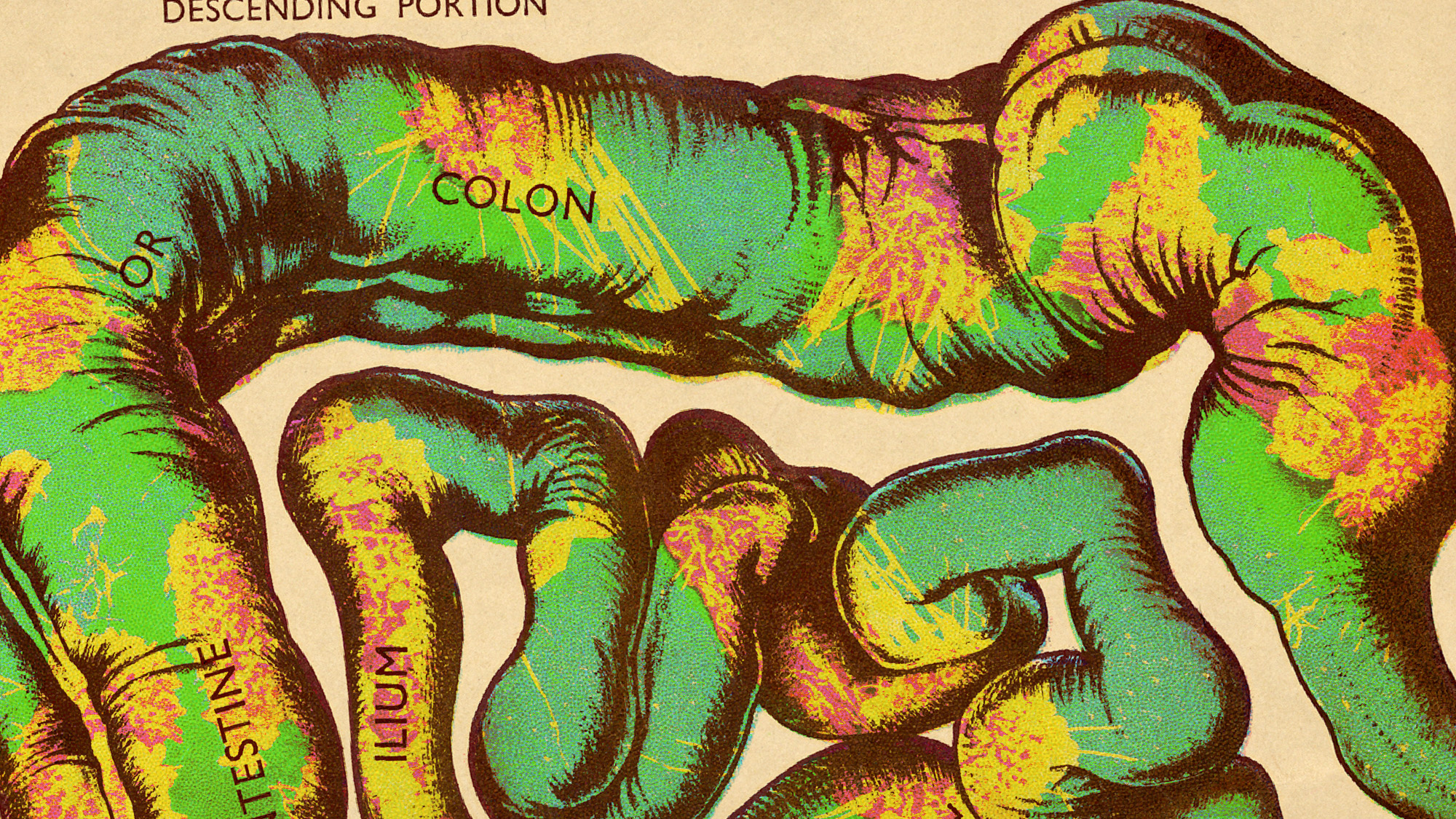The price of solidarity: Ukraine’s EU economic integration faces political headwinds

In the same weeks that US President Donald Trump was wielding the axe of a global trade war against the European Union and much of the world, another customs-related development flew largely under the radar — less dramatic in tone, and potentially more promising for the future despite some remaining uncertainties. This concerns the economic liberalisation deal between the EU and Ukraine, and in particular the Autonomous Trade Measures (ATMs) that were first introduced in 2022 following Russia’s full-scale invasion and renewed annually since then, despite mounting pressure from certain EU member states. After the start of the full scale invasion of Ukraine, the EU temporarily lifted customs duties and tariff quotas on Ukrainian products to support Ukraine's economy during the war. For two years, Ukrainian businesses were able to export their goods to the EU's internal market without restrictions. In recent months, talks have increasingly focused on a fallback plan: replacing the ATMs with updated limits under the framework of the EU–Ukraine free trade agreement signed in 2014, in the aftermath of the Euromaidan revolution and Kyiv’s pro-European shift. While Trump's global trade war has been postponed for 90 days except for China, the EU–Ukraine trade regime is set to expire on 5 June. Political sensitivities and EU protectionism in the rural sector However, in June 2024 the European Union already introduced the first limitations. The trade liberalisation was extended for another year, but with reservations regarding so-called "sensitive goods" — poultry meat, eggs, sugar, oats, grains, corn, and honey. These limiting measures were a response to widespread protests by European farmers, as well as pressure from governments of Central and Eastern Europe, which argued that Ukrainian imports were lowering internal prices and threatening their agricultural sectors. The decision to partially limit support was made just ahead of the European Parliamentary elections, with key political forces seeking to maintain the support of voters, especially of those in rural areas. It’s a politically sensitive scenario. Resetting the deal means navigating a complex balancing act after more than a year of protests from farmers and pressure from national governments — especially Poland and Romania, both heading into presidential elections in May 2025, as well as France, Hungary, and Slovakia, with the latter two often opposing deeper EU–Ukraine cooperation. Beyond the now-familiar images of protesting Polish farmers, Ukraine’s growing presence as an agricultural exporter to the EU has become a contentious issue for some Member States, especially as Ukrainian exports have steadily increased in key sectors. In February 2025, the agriculture ministers of Hungary, Bulgaria, Romania, and Slovakia called for the reintroduction of pre-war quotas on agricultural imports from Ukraine. For years, French farmers have been experiencing a profound crisis of the economic and social model imposed on them, and the country even went through a major social movement in 2024, with numerous demonstrations and road blockades. While the reasons for this discontent are diverse and often endemic, the EU-Ukraine agreement was on everyone's lips. Lately, French farmers' attention has focused on the Mercosur agreement. The French government is openly opposed to this agreement, as it could lead to unfair competition for French farmers. Pressure is mounting on the current French government, which is made up of a fragile coalition of circumstances due to the lack of a clear majority. French farmers are denouncing unfair competition due to differences in production standards. Despite the introduction of safeguard mechanisms by the EU, such as the restoration of customs duties on certain Ukrainian agricultural products exceeding average volumes from 2021 to 2023, wheat was not included in these measures. Marc Fesneau, France's Minister of Agriculture from 2022 to 2024, deemed these measures insufficient, calling for a broader inclusion of cereals in the restrictions. Faced with these challenges, France is advocating for the application of "mirror clauses”, aimed at imposing the same health and environmental standards on imported products as those in force in the EU. This approach aims to guarantee fair competition and protect European standards. In 2024, the EU maintained a €10 billion trade surplus with Ukraine, with total bilateral trade reaching nearly €50 billion — a reminder that the relationship is far from one-sided In a press release dated 21 March, 2024, the powerful FNSEA, considered to be the main trade union confederation of farmers, declared that it wanted to “combine solidarity [with the Ukrainians] with responsibility”, in order to “protect [French] farmers”. Yet for Kyiv, these exports are far more than just an economic concern: they are vital lifelines in sustaining the country’s resistance and resilience amid ongoing Russian aggression and the recent backslide in U.S. aid. The broader trade picture tells a different story from those who believe Ukraine is exploiting the EU’s free trade, echoing Trump’s ambiguous concept of economic reciprocity. In 2024, the EU maintained a €10 billion trade surplus with Ukraine, with total bilateral trade reaching nearly €50 billion — a reminder that the relationship is far from one-sided. Caught between promises and realpolitik Altogether, Kyiv remains cautiously optimistic despite ongoing uncertainty and speculation that the European Parliament may be reluctant to extend the trade measures — potentially reverting to a pre-2022 framework. Ukrainian officials remain convinced that a decision will ultimately be reached, as a collapse in the negotiations would send a highly negative message, particularly given the stance of the new U.S. administration. However, "confidence in this is steadily diminishing," writes Yurii Panchenko from European Pravda, a branch of the Ukrainska Pravda media outlet. According to a report by Politico published on 8 April, EU Agriculture Commissioner Christophe Hansen confirmed that the European Commission intends to let Ukraine’s emergency access to the EU market expire in June. Hansen reportedly ruled out any extension of the current trade regime, stating that the Council had made it clear that there was no possibility for prolongation. He also indicated that, while the emergency measures will lapse, many of the existing trade restrictions are expected to remain in place. "Although Ukraine is requesting an extension of the trade autonomous measures, Member States cannot do this because the decision has already been made," said Poland's Minister for EU Affairs, Adam Shlapka. Ukraine advocates for revising part of the Association Agreement, which regulates trade between Ukraine and the EU. Ukrainian Prime Minister Denys Shmyhal proposes extending the liberalized trade agreement until the end of this year to allow time for consultations and to prepare the Ukrainian economy. "At all levels, we have discussed the importance of preserving autonomous trade measures at least until the end of this year. This is necessary to have time to amend Article 29 of the Association Agreement and establish mechanisms that allow us to trade with the EU duty-free," said Shmyhal during the 10th EU-Ukraine Association Council, where he met with EU leaders, including the bloc’s top diplomat Josep Borrell, Parliament President Roberta Metsola, and Enlargement Commissioner Marta Kos. “We are not rewriting the whole deal — we’re talking about a few tariff lines,” Ukraine’s top trade negotiator Taras Kachka, also present at the Association Council, told Politico in an interview published on April 10. “The challenge is to do this in a way that it doesn’t become part of a campaign — but also doesn’t get delayed by one.” In an effort to safeguard the agreement, Kyiv has signaled its willingness to make concessions on a few politically sensitive agricultural products — including sugar, poultry, and eggs — as long as broader market access remains intact. "In the European Parliament there are forces which, under the pressure of a powerful agricultural lobby, demand the return of tariffs on agricultural products, in particular sugar, eggs, poultry meat, and bioethanol. This is a short-sighted position that risks undermining the long-term relations of the EU with Ukraine. Many statements made during the debates are based on disinformation. In reality, these products do not have a significant impact on food prices in the EU," MEP from "Renew Europe" and permanent rapporteur of the European Parliament on issues of economic support and trade with Ukraine Karin Karlsbro told us. In fact, Hansen mentioned that the Commission is working on a new system of tariff quotas, which would replace the current regime of full liberalisation and offer more limited access than the present arrangement. Confirming Kachka’s statements, Hansen emphasized that the new proposal would still be more advantageous for Ukraine than simply returning to the pre-invasion conditions of the original free trade agreement. “The issue between Ukraine and the EU is exclusively about agricultural products. And here we have a real intrigue – what will happen after the end of autonomous trade measures, whether they will be extended. The European Commission has declared that they do not need to be extended, and we will negotiate under Article 29 of the Association Agreement. Now we are waiting for the EU’s position, which has not yet been formulated,” said Kachka during an online event titled “Will the EU Stop Duty-Free Trade with Ukraine?” and held by the Center for Economic Strategy. The European Commission confirmed its readiness to consult on Article 29 of the Association Agreement. EC spokesman Olof Gill noted that Brussels is finalising its proposal and will soon submit it to the Ukrainian representatives. "The aim of this process is to ensure economic stability and predictability for businesses and farmers both in Ukraine and the EU, facilitating a smooth transition after the expiration of the autonomous trade measures," he said. Trade policy expert from the Centre for European Policy Svitlana Taran explains that the revision of Article 29 is a rather technical process involving consultations and negotiations between the EU and Ukraine. She emphasizes that the process could take time, and decisions may be made later than June 2025. Taran also notes that some EU member states want to introduce restrictions on sensitive goods. According to her, this could worsen the conditions that existed before the introduction of the "trade visa-free" agreement in 2022. "The task for Ukraine is to prevent the worsening of conditions and, at the same time, find a solution that would address the concerns of EU member states," said the expert. Ukraine’s trade future: stuck in limbo between the US and the EU On April 16, Ukrainian MP Yaroslav Zhelezniak, a member of the liberal and pro-European Holos party, announced that the Verkhovna Rada (the Ukrainian parliament) had addressed the institutions of the European Union with a formal request to extend the trade liberalisation regime in favor of Ukraine. Resolution No. 13143, which includes the official appeal to the EU, was approved by 252 members of parliament, according to Forbes Ukraine. The draft law states that the Rada is appealing to the EU with a call to "immediately launch and make as effective as possible the negotiation process between Ukraine and the relevant bodies and services of the European Commission regarding amendments to the relevant annexes of the Association Agreement between Ukraine and the EU in the part concerning mutual tariff concessions on the import of goods." Some experts and trade correspondents are less optimistic than Kachka, including Anton Filippov from European Pravda. While the European Commission promised to negotiate a broader bilateral trade liberalisation under the EU-Ukraine association agreement as a replacement for the ATMs last year, the process has yet to begin. As reported by Financial Times, two EU diplomats indicated that the Commission has delayed the proposal to avoid upsetting Polish farmers, a crucial group ahead of Poland’s presidential election on May 18. The current consultations aim "to ensure economic stability and predictability for businesses and farmers both in Ukraine and the EU," according to Commission spokesperson Gill. However, many fear that an agreement is unlikely to be reached in just over a month. If the war persists beyond that, which remains likely despite Trump’s promises and rhetoric, this could present serious challenges for Ukraine’s economy. Regarding Trump, there are reports that the U.S. has softened its demands regarding the Ukraine minerals deal following talks in Washington. Specifically, the Trump administration has reduced the repayment for the aid it seeks under the minerals agreement with Ukraine from $300 billion to $100 billion, according to Bloomberg on April 16, citing undisclosed sources. This followed technical consultations between U.S. and Ukrainian delegates in Washington on April 11 and 12. On April 16, First Deputy Prime Minister Yulia Svyrydenko stated that the two countries had made "substantial progress" in their talks on the minerals deal and would sign a memorandum soon. While awaiting a clear and sustainable peace plan, Kyiv remains mired in negotiations with its key allies over its economic survival — a conditio sine qua non for its military resistance against Russia’s brutal aggression, which has escalated its attacks on civilians in recent weeks. Taran points out that Ukraine indeed depends on financial assistance from Western partners. However, the opportunity to earn through exports reduces the financial burden on these partners. "Export is an important source of income for Ukraine, and the European Commission understands how critical it is for our country. The European Commission is constructively inclined to negotiate with individual EU Member States and reach a consensus," said Taran. In this context, the EU’s approach to trade cooperation with Ukraine is particularly illustrative. As MEP Karlsbro notes, “a current example of how EU trade policy can have real significance for Ukraine is the ongoing proposal to maintain duty-free access for Ukrainian steel. While the United States recently introduced 25% tariffs on Ukrainian metal products, the European Commission, on the contrary, singled out steel in a separate agreement.” She adds that a positive vote in the European Parliament’s Committee on International Trade is a sign of political support. “The EU must adhere to the same approach when it comes to the broader review of the Deep and Comprehensive Free Trade Area,” Karlsbro emphasizes. Rumors about a short-term signing of the treaty between the United States and Ukraine disappeared after the postponement of high-level meetings in London last April 23, apparently decisive for Trump’s peace plan. Just a few days earlier he had, as usual, promised big news on the horizon. On April 25, Trump accused the Ukrainians of being "three weeks late," calling for them to sign “immediately" (with the latter word written in all caps on his personal social media platform Truth). With the slowing down of the negotiations that Washington is forcing on Kyiv and, more reverently, on Moscow, the economic agreement between the U.S. and Ukraine is once again uncertain, fueling pessimism among Ukrainian businesses. Should the privileged relationship with the EU also fall through due to its internal electoral dynamics, Ukraine would face an even bleaker economic outlook. 🤝 This article was produced as part of the PULSE Thematic Networks, a European initiative supporting transnational journalistic collaborations.



















